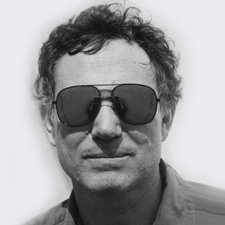Till You're Gone: Difference between revisions
No edit summary |
No edit summary |
||
| Line 18: | Line 18: | ||
|label10= Preceded by: | |label10= Preceded by: | ||
|label11= Followed by: | |label11= Followed by: | ||
|data10 = [[Death Of Trotsky, The|The Death Of Trotsky]] | |data10 = [[Call In The Night, A|A Call In The Night]] | ||
| | |data11 = [[Death Of Trotsky, The|The Death Of Trotsky]] | ||
}} | |}} | ||
'' | ''It was one of those hot and humid summer nights. I'd just finished working out at the stadium where I was practicing for the Olympic trials in the decathalon...'' | ||
'''Til You're Gone''' is the name of a program Joe Frank produced as part of the series [[WBAI And NPR Playhouse]]. | '''Til You're Gone''' is the name of a program Joe Frank produced as part of the series [[WBAI And NPR Playhouse]]. | ||
Revision as of 12:22, 24 February 2021
| Series | |
|---|---|
| WBAI And NPR Playhouse | |
| Original Broadcast Date | |
| 1979 | |
| Cast | |
| Arthur Miller, Robin Bartlette, Tim Jerome, Paul Mantell, Irene Wagner, Eric Sears, Rosemary Foley, David St. James, Marcel Rosenblatt, Joe Frank. "Til You're Gone" original song performed by Arthur Miller. | |
| Format | |
| 1 hour | |
| Chronology | |
| Preceded by: | A Call In The Night |
| Followed by: | The Death Of Trotsky |
It was one of those hot and humid summer nights. I'd just finished working out at the stadium where I was practicing for the Olympic trials in the decathalon...
Til You're Gone is the name of a program Joe Frank produced as part of the series WBAI And NPR Playhouse.
Synopsis
A ticking clock, and music: "Your father was a picture on the wall. . ." Actors read personals ads. Joe talks about a brief beach-side fling with a woman when he was a college athlete. A couple on the beach, Philip and Doris, fight about looking at other women. A panel discussion about the importance of Freud's diet and the origin of German food. Philip and Doris fight in a restaurant. Joe visits the town of his childhood and is berated for not having written by the wrong mother. Joe is in a battle against an army of women in a laundry room. Joe visits his mother. Philip and Doris fight in bed. A consciousness lowering group. Pianos as lovers. A mock movie news program about German war criminals disguised as Latinos, observant Jews, catholic priests. Second person reminiscences about love among Nazis. An academic discussion and interpretation of the acted scenes.
Music
- "Cool Out" - Leroy Hutson (from "Hutson", 1975)
- "Valley of the Shadow" - Thomas Newman (from "Little Women Soundtrack", 1995) [added to later version; not in the original broadcast version]
Commentary
Please see guidelines on commentary and share your personal thoughts in this section.
